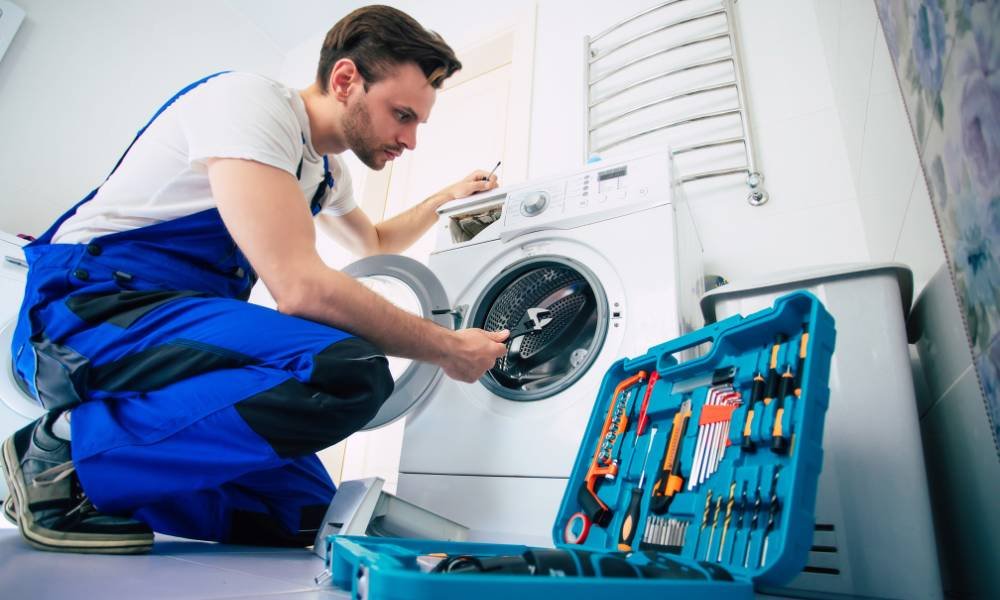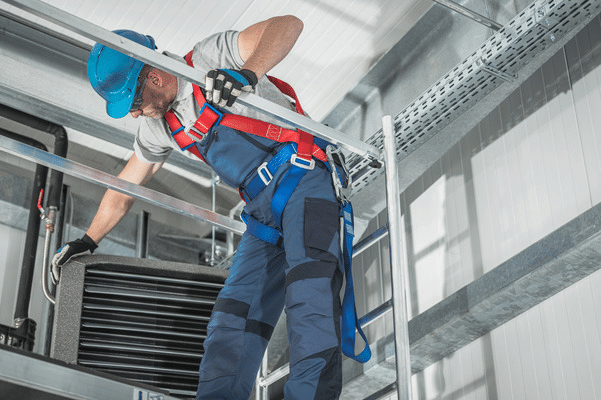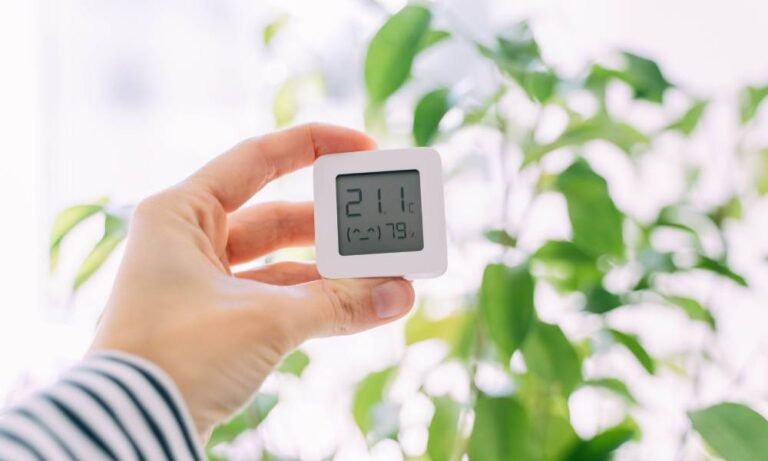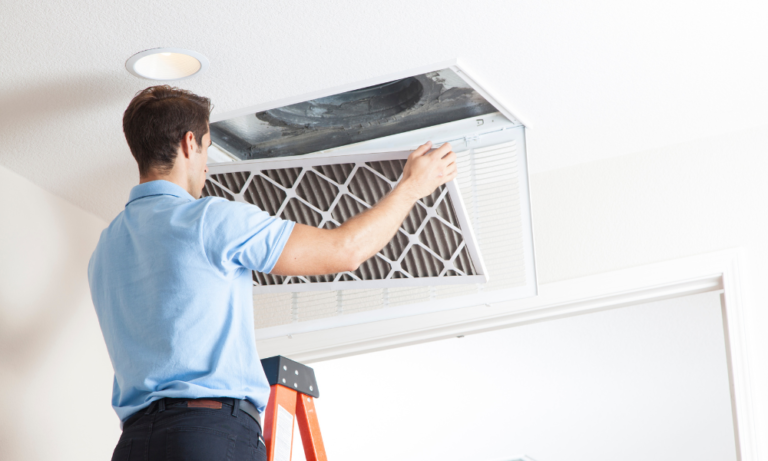Estimated reading time: 5 minutes
Your HVAC system is the backbone of your home’s comfort, keeping you cool during sweltering summers and warm in frigid winters. But what happens when it starts acting up? Before you call a professional, there are several troubleshooting steps you can take to identify and resolve common issues. Not only can this save you time, but it might also save you money.
In this guide, I’ll cover:
- Safety precautions before troubleshooting
- Common HVAC problems and their DIY solutions
- Preventive tips to avoid future issues
- When to call in the experts
Let’s explore how to get your HVAC system back on track with a little DIY know-how.
1. Safety First: Precautions Before Troubleshooting
Before diving into any fixes, safety is paramount. HVAC systems involve electricity, moving parts, and sometimes gas, so a cautious approach is crucial.
Turn Off Power
Always switch off power to the unit before inspecting or repairing it. Locate the breaker box and turn off the circuit connected to your system.
Gather Basic Tools
A few handy tools can make troubleshooting easier. Keep a flashlight, screwdriver, and replacement filters nearby.
Know Your Limits
While DIY troubleshooting can resolve minor issues, it’s important to recognize when a problem requires professional attention. Attempting complex repairs could worsen the issue or void your warranty.
2. Common HVAC Issues and DIY Fixes
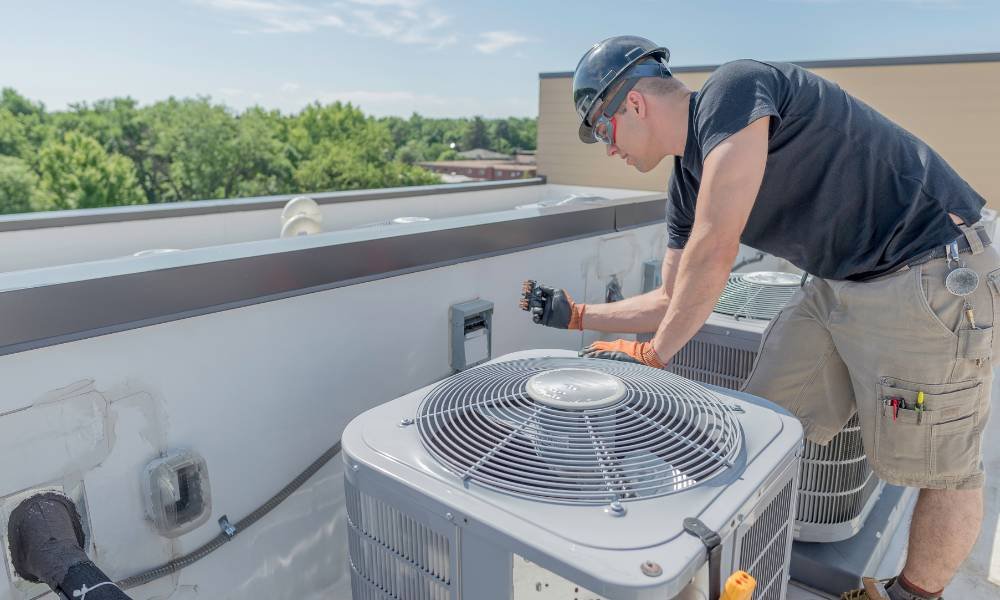
HVAC systems can show various signs of distress. Here are some common problems and the steps you can take to fix them:
Thermostat Problems
Your thermostat is the control hub for your HVAC system, so any issues here can disrupt operation.
- Check Settings: Ensure it’s set to the correct mode (cool/heat) and desired temperature.
- Replace Batteries: A simple but often overlooked fix. Dead batteries can cause malfunctions.
- Reposition Thermostat: If it’s placed near windows, vents, or heat-generating appliances, it might give inaccurate readings.
Poor Airflow
Weak airflow can make your HVAC system work harder, reducing efficiency and comfort.
- Inspect Filters: Dirty or clogged filters restrict airflow. Replace them regularly, ideally every 1–3 months.
- Check Vents: Ensure vents are open and free from obstructions like furniture or debris.
- Look for Duct Issues: Inspect visible ductwork for blockages, leaks, or disconnected sections.
Unusual Noises
Strange sounds coming from your system can be unsettling, but they often indicate specific issues.
- Rattling or Banging: Tighten any loose panels or screws.
- Squealing: This may point to a worn-out belt or dry motor components. Lubricate moving parts as per manufacturer instructions.
- Humming or Clicking: Inspect the fan blades for dust or damage, and clean them if necessary.
System Won’t Turn On
If your HVAC system refuses to power up, try these steps:
- Check Power Supply: Verify that the unit is plugged in and receiving power. Reset the circuit breaker if tripped.
- Inspect the Thermostat: Ensure it has power and is set correctly. Replace batteries or troubleshoot the wiring if needed.
Uneven Heating or Cooling
If some rooms are noticeably warmer or cooler than others, it’s likely a distribution issue.
- Balance Dampers: Adjust dampers in the ductwork to direct more air to certain areas.
- Clear Vents: Make sure all vents are open and not blocked by furniture.
AC Blowing Warm Air
An air conditioner that can’t cool effectively is a frustrating problem.
- Clean the Outdoor Unit: Remove debris like leaves and dirt from the condenser.
- Inspect Refrigerant Levels: Low refrigerant can hinder cooling, but adding more requires a professional.
- Check Airflow: Ensure filters and vents are clean and unobstructed.
Strange Odors
Unpleasant smells coming from your HVAC system can indicate a bigger issue.
- Musty Odors: Look for mold or mildew in ducts, the drip pan, or the evaporator coil. Clean and disinfect affected areas.
- Burning Smell: Shut off the system immediately and inspect for electrical issues or overheating components.
3. Preventive Tips to Minimize Issues
Regular maintenance can prevent many common HVAC problems. Here’s how to keep your system running smoothly:
Replace Filters Regularly
Clean filters are essential for proper airflow and efficiency. Set a reminder to check them monthly.
Keep Outdoor Units Clean
Trim back plants or bushes around the outdoor unit and clear away debris to maintain optimal airflow.
Schedule Seasonal Maintenance
Professional tune-ups before summer and winter can catch potential problems early and optimize performance.
4. When to Call a Professional
While DIY fixes can address many issues, some problems are best left to the experts.
Signs You Need Professional Help
- Persistent issues after troubleshooting.
- Refrigerant leaks or electrical faults.
- Strange noises or odors that don’t resolve with basic fixes.
Benefits of Professional Assistance
HVAC technicians have the tools and expertise to diagnose and resolve complex issues efficiently. They can also ensure your system operates safely and remains under warranty.
5. FAQs About HVAC Troubleshooting
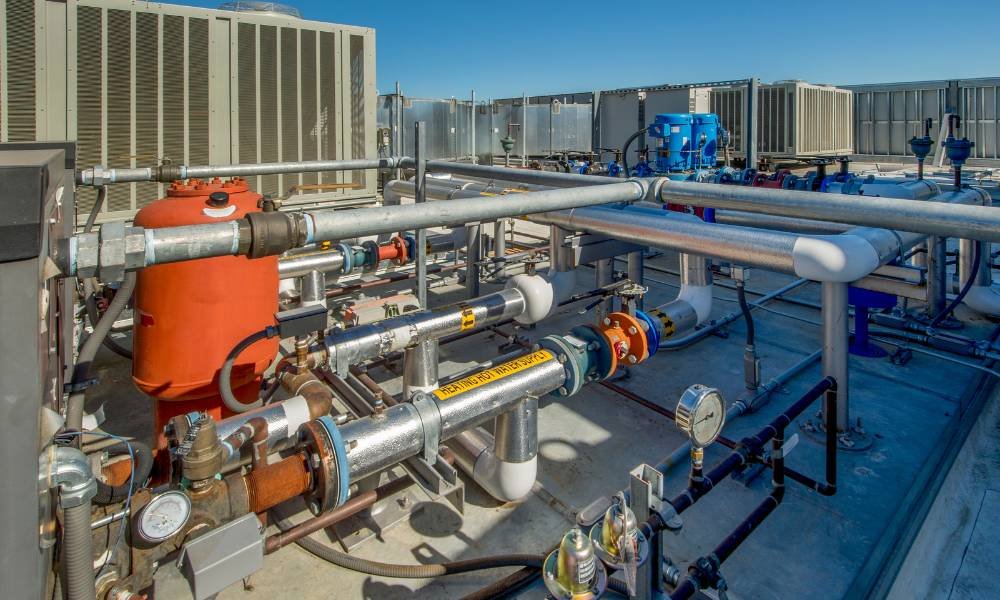
What should I do if my HVAC system stops working?
Start by checking the power supply, thermostat, and filters. If the problem persists, contact a technician.
How often should I replace air filters?
Replace filters every 1–3 months, depending on usage and household factors like pets or allergies.
Why is my HVAC system making loud noises?
Unusual noises could indicate loose components, debris in the system, or motor issues. Tighten parts, clean the fan, or call a professional if needed.
6. Conclusion
Troubleshooting your HVAC system doesn’t have to be daunting. With a little knowledge and a few basic tools, you can resolve many common problems on your own. From thermostat adjustments to cleaning filters and vents, these simple steps can save you time and money.
However, if the issue persists or seems beyond your expertise, don’t hesitate to call in a professional. Regular maintenance and timely repairs will keep your HVAC system running smoothly, ensuring your home stays comfortable year-round.
Your comfort is worth it—and so is a lower energy bill!
